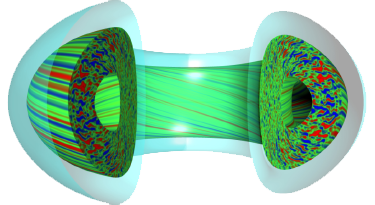Speaker
Description
In metallic devices, the occurrence of disruptions is particularly difficult to predict because of the nonlinear interactions between various effects, such as neoclassical convection of impurities, centrifugal forces, rotation, profile hollowness and MHD modes, just to name a few. While efforts to develop physics based plasma simulators are continuing, data driven predictors, based on machine learning, remain an important fall back solution. In the perspective of contributing to the safe operation of new large Tokamaks, being able to transfer experience from one device to another would be very beneficial. The paper describes a procedure to deploy predictors trained on one device at the beginning of the operation of a different one. The proposed tools have been tested by training them using AUG data and then deploying them on JET data of the first campaigns with the new ITER Like Wall. The obtained results are very encouraging. After a transition learning phase, in which in any case the performances remain sufficiently high, the predictors manage to meet the ITER requirements for mitigation in terms of both success rate and false alarms. Promising improvements have also been achieved for prevention, using in particular information about the radiation profiles.
| Country or International Organisation | Italy |
|---|---|
| Affiliation | University of Rome Tor Vergata |

